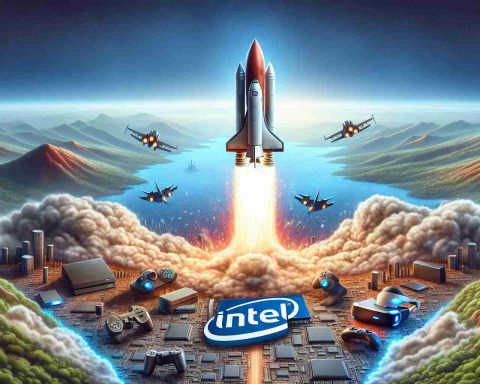In a world increasingly driven by digital transformations, the gaming industry might be on the verge of a revolutionary shift akin to the transportation upheaval wrought by ride-sharing platforms like Uber. As new technologies continue to emerge, they could drastically alter the gaming market’s dynamics and affect valuable market rankings.
What if the gaming industry had its own “Uber”? Cloud gaming platforms are rapidly evolving, offering gamers the ability to access high-quality games on any device without the need for expensive hardware. This change makes gaming more accessible and affordable, much like Uber’s impact on transportation accessibility. Game streaming services such as Microsoft’s Xbox Cloud Gaming (formerly known as Project xCloud) and NVIDIA’s GeForce Now are already stirring the market, but it’s only the beginning.
The future points to a shift in market value. Imagine cloud gaming companies achieving “Uber-like” valuations, disrupting traditional gaming giants. The potential growth could bring a reimagined competition landscape where cloud gaming’s value outpaces console-centric companies. This shift might redefine what we consider “market cap” in gaming, possibly reaching the astronomical levels typically associated with tech powerhouses.
Why it matters now? As these technologies mature, investments in cloud infrastructure and latency reduction promise to enhance user experiences, aiding wider adoption. The gaming community and investors should prepare for a paradigm shift. The reach of these advancements implies the gaming world’s market leaders could soon be determined not by console sales but by virtual innovations in reach and structure, setting the stage for an “Uber-sized” leap in valuation and market placement.
Game On: Is Cloud Gaming the “Uber” of the Gaming World?
The gaming industry is poised for a groundbreaking upheaval as cloud gaming emerges as a transformative force, reminiscent of how Uber revolutionized transportation. As the frontrunners of cloud gaming, platforms like Microsoft’s Xbox Cloud Gaming and NVIDIA’s GeForce Now are pioneering this change, promising to democratize gaming by making it more accessible and affordable. Here we explore the elements that could lead cloud gaming to an “Uber-like” redefinition of the gaming landscape.
How Does Cloud Gaming Work?
What is Cloud Gaming?
Cloud gaming allows users to play high-quality games streamed over the internet to almost any device, eliminating the need for expensive gaming consoles or high-end PCs. Players can access their favorite titles on smartphones, tablets, or smart TVs, essentially turning any screen into a gaming platform.
The Pros and Cons of Cloud Gaming
Benefits
– Accessibility: Users can play from anywhere with a stable internet connection, making gaming more inclusive.
– Cost Efficiency: Gamers save on purchasing pricey hardware since the processing is handled by remote servers.
– Instant Access: No waiting for downloads or installs; games are ready to play immediately.
Drawbacks
– Internet Dependency: A reliable and fast internet connection is necessary to avoid lag and ensure a smooth experience.
– Subscription Costs: Although cheaper than buying hardware, the cumulative cost of subscriptions can be significant.
Market Analysis and Predictions
Cloud gaming’s potential to disrupt traditional market structures is immense. Should it achieve the same success as Uber, it could redefine market values, with projections suggesting valuations rivaling that of current tech giants. This shift might see cloud gaming companies surpass traditional console manufacturers, changing how market cap is evaluated in the industry.
Trends and Innovations to Watch
– Latency Reduction: Significant investments are being made to reduce latency, ensuring seamless gameplay that rivals local gaming experiences.
– Infrastructure Development: As cloud infrastructure continues to expand, it will support broader adoption and development of more complex games.
Why the Timing is Crucial
The gaming community’s awareness and investment strategies need to evolve alongside these transformative technologies. With the landscape defined by virtual outreach rather than physical sales, a progressive approach to investment and development in cloud gaming could become critical for future market leaders.
It appears only a matter of time before the gaming world experiences an “Uber-sized” leap, putting cloud gaming platforms at the forefront of industry innovation and market valuation. For more insights into cloud gaming and its potential impact, visit Microsoft or NVIDIA.
















